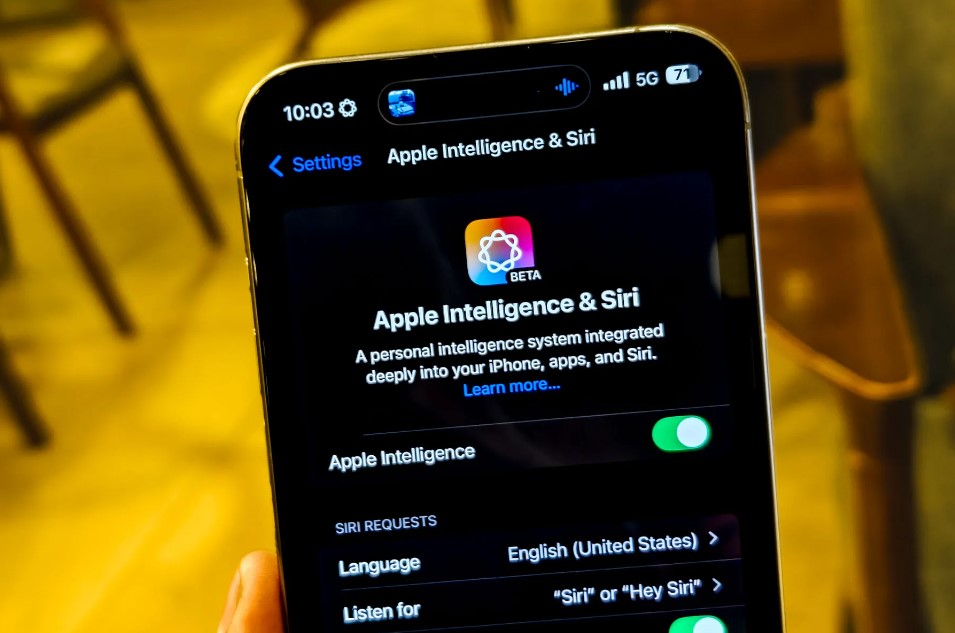Apple is facing significant hurdles as it ventures into the fiercely competitive AI-powered smartphone market in China. Recent data reveals that Apple’s delay in launching its generative AI platform, Apple Intelligence, is leaving the company at a disadvantage in one of its largest markets. As local competitors dominate the market with cutting-edge AI features, Apple’s position appears increasingly precarious.
Please follow us on Facebook and Twitter.
Market Landscape: A Tough Battle Ahead
China’s AI smartphone market is dominated by domestic players, with Huawei and Xiaomi collectively controlling a staggering 61.7% share. Huawei leads with 34.8%, while Xiaomi holds 26.9%. Vivo follows distantly at 11.6%. Apple, despite its global reputation as a premium smartphone brand, is conspicuously absent from this data.
The problem stems largely from Apple’s delayed launch of its AI platform. Apple Intelligence, announced in June 2024 and further detailed with the iPhone 16 series in September, only began its official rollout in October with iOS 18.1. Even then, the rollout has been incomplete, with many features still in beta and unavailable in critical regions like China.
Regulatory and Technological Challenges
China’s strict regulations on generative AI pose another significant obstacle for Apple. To release AI products in the country, Apple must secure government approval, which requires transparency about its AI systems’ training methods and security compliance. Apple Intelligence’s reliance on OpenAI’s technology complicates matters further, as OpenAI has restricted its software’s access in China.
This leaves Apple with two unappealing options: withdraw from the Chinese AI market entirely or develop a censored version of Apple Intelligence tailored to local regulations. Both options carry risks. Walking away means losing access to its largest overseas market, while creating a localized version may dilute the Apple brand’s core values of privacy and innovation.
Consumer Expectations and Competitive Pressure
Chinese consumers have high expectations for AI integration in premium smartphones. According to IDC, many buyers are unwilling to pay over $1,000 for a device lacking cutting-edge AI features. This puts Apple at a distinct disadvantage, especially as its competitors leverage AI to drive sales. Huawei and Xiaomi, for instance, have already integrated robust AI features that appeal to tech-savvy buyers.
Samsung, another global player, has managed to navigate these challenges by partnering with local companies like Baidu and Meitu for its Galaxy AI functionality. This collaborative approach may serve as a model for Apple as it seeks to comply with China’s regulatory requirements while meeting consumer expectations.
Declining Market Share: A Warning Sign
Despite maintaining the second spot in overall smartphone shipments in China, Apple’s performance shows signs of weakening. Research from IDC indicates that the iPhone 16 has performed similarly to the iPhone 15, but Apple’s overall market share has declined compared to the previous year. Meanwhile, Huawei, Xiaomi, and Vivo have all experienced notable growth.
These trends highlight the urgency of Apple addressing its AI challenges. Without swift action, the company risks losing further ground to competitors who are capitalizing on AI to win over Chinese consumers.
A Possible Path Forward
Apple appears to recognize the gravity of the situation. In late October, CEO Tim Cook visited China and met with the head of the Ministry of Industry and Information Technology. While it’s unclear whether discussions included Apple Intelligence, the visit underscores the importance of the Chinese market to Apple’s global strategy.
One potential solution for Apple is to form partnerships with local AI companies, similar to Samsung’s approach. By collaborating with established players in China, Apple could gain the regulatory approval needed to release Apple Intelligence while ensuring its platform aligns with local consumer demands.
Another avenue could involve prioritizing innovation in hardware and software integration. Apple has long been known for creating seamless user experiences, and doubling down on unique AI functionalities that cater to Chinese consumers could help the company regain its competitive edge.
Conclusion

Apple’s challenges in China’s AI smartphone market reflect the broader difficulties of operating in a highly regulated and competitive environment. While the company’s reputation and innovative capabilities remain strong, its delayed entry into the AI space costs it valuable market share.
To stay relevant, Apple must act quickly to address regulatory barriers and consumer expectations. Whether through strategic partnerships, localized AI development, or other innovative solutions, Apple’s ability to navigate these challenges will determine its future in one of the world’s most important smartphone markets.





